- Home
- Captain W E Johns
32 Biggles In The Orient Page 2
32 Biggles In The Orient Read online
Page 2
Occasionally one went through on schedule, and this only deepened the mystery. Perhaps I had better make that point clear. Naturally, when our machines first started to disappear, we assumed that the Japs had got wind of the route and had established an advanced base from which fighters could operate. And that may in fact be the case. But the astonishing thing is, pilots who have got through have invariably reported a clear run.
They didn't see a single enemy machine the whole way. That's hard to explain. If the Japs know of the route, and are attacking it, it
15
seems extraordinary that some machines should he allowed to pass unmolested. In a nutshell, our machines either got through untouched, or they didn't get through at all.
There was nothing in between. What I am trying to make clear is, the machines that failed, disappeared utterly. There has not been a single case of a pilot fighting his way through. In the ordinary course of events one would expect machines to arrive at their destination badly shot up, to report that they had been attacked by enemy fighters. But that has not happened. As I say, once in a while a pilot makes an uneventful flight. The rest just vanish."
"That certainly is odd," murmured Biggles. "What is the position on the route now?"
"Between ourselves, we are temporarily suspending operations. We must. The surviving pilots are getting the jitters, and the commanding officer is jibbing at sending men to almost certain death. In the last few days a number of pilots have volunteered to rush through with some badly needed medical stores. None of them arrived. We can't go on like that."
"But surely," interposed Biggles, "surely with radio a pilot could report the menace the moment it appeared? Whatever the trouble was, he would have warning of it, if only for a few seconds—time enough to flash a signal."
The Air Commodore nodded. "I was waiting for you to say that. You've put a finger on the most inexplicable part of the whole business. No such message has ever been received. In every case the radio has gone dead on us. We once sent a machine out with instructions to report to base every five minutes."
"What happened?"
"The signals came through like clockwork for an hour. Then they just faded out."
"Good Lord! " Biggles looked amazed. "No wonder your pilots are getting jumpy. Tell me this. Does the interference apply to both ends of the route?"
"That's another astonishing thing. It doesn't. No 16
machine has ever had the slightest difficulty in getting through from China to India. It's the India-China service that has been cracked up."
"That certainly is a poser," muttered Biggles, slowly. "It doesn't seem to make sense.
Have you tried operating at night?"
"We have," asserted the Air Commodore. "That was the first counter-measure we tried. It made no difference. Machines disappeared just as regularly as by day."
Biggles shook his head. "I don't wonder you're in a flap."
"But just a minute," went on the Air Commodore. "There is worse to come. The same rot has now set in elsewhere, in the regular service squadrons. At the moment four stations are reporting abnormally high casualties without being able to offer the slightest explanation. In each case the casualty is a complete disappearance. The second place to suffer was right here, at Dum Dum. The third was Trichinoply, Madras, half-way down the coast, and the fourth, Ceylon, at the tip of the peninsula."
"From which we may suppose that the Japs, perceiving that they are on a winner, are developing the thing, whatever it is," put in Biggles grimly.
"Precisely," interposed the Air Marshal dryly. "I need hardly point out that if it goes on we soon shan't have any Air Force left in this part of the world. We're relying on you to get to the bottom of it."
Biggles looked startled. "But if your technical experts have failed, sir, what do you think I can do about it?"
The Air Marshal shrugged. 'I haven't the remotest idea. We're floored, stumped. Do what you can."
"But that's all very well, sir," protested Biggles. "As far as I can see, to send my pilots out looking for nobodyknows-what, would merely be to send them for a Burton to no useful purpose."
"You're our last hope, Bigglesworth," said the Air Commodore, with something like despair in his voice. "We
17
can't just suspend air operations--we might as well pack up altogether as do that."
"If you go on losing pilots and machines at the rate you are evidently losing them it will come to the same thing in the end."
The Air Marshal stepped in again. "See what you can do, Bigglesworth. You can have carte blanche, a freelance commission, have what equipment you like, do what you like, go where you like—but this thing has got to be stopped."
Biggles tapped a cigarette on the back of his hand. "Very well, sir. I don't Mind going out myself, but it isn't going to be very nice to have to ask my boys to virtually commit suicide. They'll go if I tell them to go, but I'd like you to know how I feel about it. This business of watching one's officers go one by one—"
"That's just how four other station commanders are feeling at this very moment, Bigglesworth," broke in the Air Commodore wearily.
Biggles pulled forward a scribbling-pad, and picked up a pencil. For a little while he made meaningless marks. Then he asked: "What about altitude? Does that make any difference?"
"None," answered the Air Commodore. "In desperation we tried sending machines to their ceiling before leaving the airfield. They disappeared just the same."
"I see. What is the longest period you have maintained radio contact with an aircraft that subsequently disappeared?"
"Four hours. That was on the Chungking run. It's a thousand miles."
"No intermediate landing-ground?"
"None."
"And what is the shortest period before you lost touch with a machine?"
"An hour."
Biggles shrugged. "The thing 'becomes uncanny. The time interval between one and four hours, translated to distance, is six or seven hundred miles. How can one even 18
start looking for a thing that can strike over such an enormous area? You say that all the machines which disappeared, vanished into the blue. Am I to understand that not one of these crashes has ever been found?"
"That, unfortunately, is so," answered the Air Commodore. "You've flown over the Himalayas, and the Burmese jungle, so you know what it's like. It would be easier to find a pin in a cornfield."
"These crashes, then, always occur over enemy-occupied country?"
"Either that or over the sea. From here we operate over Burma. From Madras and Ceylon most of the flying is done over the Indian Ocean."
"There has never been an unexplainable crash in India itself?"
"There have been one or two crashes—not more than one would expect in the ordinary course of flying routine. These crashes were, of course, examined—but you know what such a crash looks like?"
"No unusual features emerged at the courts of inquiry?"
"None. In each case the pilot was killed, so he couldn't tell us anything, even if there was something to tell. There was a crash on this aerodrome two days ago. The pilot tried hard to say something before he died—but there, that could happen anyway."
"Had he been over enemy territory?"
"Yes."
"What about the machine?"
"There was nothing wrong with it, as far as could be ascertained."
"How long had this pilot been in the air?"
"About twenty minutes. He left a formation and turned hack."
"Why?"
"We don't know. There was nothing very remarkable about that. Machines occasionally turn back for one reason or another."
"What I'm trying to get at is this," explained Biggles.
19
"Has there ever been an instance of an aircraft, or a pilot, affected by the new weapon, crashing on our side of the lines?"
"Not as far as we know—unless the pilot I just mentioned was a case. That seems most unlikely though, as
he was one of a formation of ten. Had he been attacked, surely the others would have been attacked, too."
"Tell me about this particular show," invited Biggles.
"It was the last big raid we attempted from this airfield," replied the Air Commodore. "
The rot had already set in, you understand, so the pilots and air crews taking part were keyed up for trouble. Actually, there are four squadrons here, not counting yours; two bomber squadrons and two fighter. Incidentally, you have been posted here as a communication squadron. Two days ago, one of the bomber squadrons took off soon after dawn with every machine it could raise—ten Blenheims—for a raid on the enemy-occupied airfield at Akyab. The distance to the objective, by the direct route across the Bay of Bengal, is about four hundred miles. Actually, the raid was timed for dawn, but there was still some mist about so the takeoff was postponed till it cleared."
"And you say the pilots were aware of the mysterious weapon?"
"Yes. All personnel were very much on the alert." "Go on, sir."
"About twenty minutes after the take-off one of the Blenheims was seen coming back. It was fairly low, gliding, in a manner which might be described as unsteady."
"Which implies that the pilot was having trouble?"
"Yes—but then, had he not been in trouble he would not have left the formation."
"Did he speak over the radio?"
"No."
"So you have no idea what the trouble was?"
"Not the remotest. Shortly after passing over the boundary of the airfield the aircraft stalled, and crashed, with what result I have already told you. At the Court of Inquiry, which went into the evidence very carefully, it
was decided that such an accident could occur quite apart from any secret weapon. In fact, it was that sort of accident that could occur, and does occur, regularly."
"What was the name of this pilot?"
"Cratton."
Biggles made a note. "What happened to the rest of the formation?"
"The flight ended in disaster," said the Air Commodore heavily. "An hour after taking off, one of the nine remaining machines, before enemy opposition was encountered, without warning went into a spin and fell into the sea. Just before reaching the objective, in precisely the same conditions, another machine went down. One was shot down in combat over the target area. The six survivors dropped their bombs and turned for home.
On the return journey four more went down at irregular intervals. Only two got back safely, both perfectly all right beyond being shaken by the tragedy of their comrades, and the strain of flying with the same fate impending."
"There was absolutely nothing wrong with them physically?"
"Nothing."
"And what about the machines?"
"They were all right, too."
"And the surviving pilots could offer no explanation as to why the others went down?"
"None. The story was the same in every case. The stricken machine flew badly for a moment or two and then appeared to fall out of control. Sometimes the engines were cut, sometimes the machines hit the water with the motors running."
Biggles lit a fresh cigarette. "I understand what you mean about pilots becoming unnerved. Anyone would freeze to the stick with that sort of thing going on round him.
As far as a solution to the mystery is concerned, inevitably one thinks of death rays, so called, which I believe have often been used in fiction, but never in fact. Scientists say that such a ray is not possible—but then, scientists are not always right."
21
"You think there may be something in the death ray idea, then?" suggested the Air Marshal. "We've considered it, of course."
"Frankly, no," replied Biggles. "And I'll tell you why. If such a device was being used one would suppose that once they were within the sphere of influence all machines would be affected. In a daylight raid most aircraft keep a tight formation. I mean, if the thing could strike down one machine surely it would be able to strike down the others?
We can hardly suppose that some machines are vulnerable while others are not. How was it that two came back? They were in all respects identical with those that fell. Then again, why the interval of time between the falling out of the last machines?"
The Air Marshal spoke. "Our experts assert positively that the death ray is not yet a practical proposition, but there may be a beam device which could affect the electrical installation of an aero engine. For want of any other explanation we are inclined to accept that view."
"I'm not," returned Biggles bluntly.
"Why not?"
"In the first place, because the failure of its power unit doesn't necessarily cause an aircraft to go down out of control. The pilot would automatically put the machine into a glide, and while the machine was gliding he would have ample time to send out a signal.
Then again, air crews wear parachutes. If the aircraft was vitally affected the men in it would bale out. To me it looks more as if machines are being sabotaged on the ground."
"You can rule out sabotage," said the Air Commodore. "Those Blenheims were inspected and tested down to the last detail before they left the ground. With all this going on you can be quite sure that close watch is kept on equipment."
Biggles thought for a moment. "The one incontestable fact is that something is going wrong. If the trouble isn't caused in the air, then it must start on the ground. Against trouble in the air is the absence of anything like structural failure, which would certainly be spotted by the other
machines in the formation. I still think it is extraordinary that none of these crews baled out, or tried to bale out."
"It isn't always easy to abandon an aircraft that is falling out of control," remarked the Air Commodore.
"And in the case of the Blenheims the Bay of Bengal was underneath, don't forget," put in the Air Marshal. "The bay is infested with sharks."
"That may have been the reason," agreed Biggles. "For all we know, the crews of some of the machines that were lost on the China route may have baled out. Even if they got down alive, I imagine they'd find it impossible to get back on foot."
There was another short silence. All eyes were on Biggles's face as he pondered the problem.
"Tell me," he went on presently, "was there any rule about the number of pilots in these lost machines? I mean, has disaster ever overtaken a machine with two pilots in the cabin?"
The. Air Commodore answered. "I'm not quite sure about that. Out here we have to be economical with pilots, so in most cases only one pilot was on board; but I believe there was one case—it was on the China run—when two pilots were lost together."
Again silence fell. Biggles chewed a matchstalk reflectively. Outside, the brief tropic twilight was passing, but the sultry heat persisted. The Air Commodore switched on a light. A large white moth flew in through the open window and fluttered round the globe with a faint rustling sound as its wings beat with futile effort against the glass.
"Any more questions, Bigglesworth?" asked the Air Marshal anxiously.
Biggles looked up. "No, sir." He smiled wanly. "You've given me plenty to think about. I'
d like to sleep on it." "Then you'll—er—take the matter in hand?"
"I'll do my best with it, sir."
"It's urgent—desperately urgent."
"That's about the only aspect of this affair that's really 23
obvious, sir," answered Biggles. He got up. "I'll go now and have a word with my officers. Between us we may get on the scent of the thing. If we do I'll report to the Air Commodore. I take it that no one on the station will be told the real reason why we have come here?"
"I'll see to that," promised the Air Commodore. "Even the station commander, Group Captain Boyle, supposes you to be an ordinary communication squadron, sent out here for special duty."
"He's not likely to interfere with us?"
"No. I've told him that you will come directly under the Higher Command for orders.
The presence here of the
A.O.C. will confirm that."
"Very good, sir. By the way, are you staying on here?"
"For the time being, at any rate," answered Air Commodore Raymond. "You can regard me as a sort of liaison officer between you and the Air Officer Commanding. Call on me for anything you need."
Biggles saluted and withdrew. Deep in thought, and not a little worried, he made his way along the silent tarmac to the quarters that had been allocated to the squadron.
BIGGLES BRIEFS HIMSELF
THE buzz of conversation died abruptly as Biggles walked into the ante-room and closed the door behind him. Only the radio went on, unheeded, relaying music from London. A short, stoutish, olive-skinned, middle-aged man, dressed in white duck trousers and mess-jacket, wearing a beaming smile, was standing by a low table on which rested a brass tray bearing a coffee-pot and cups.
Biggles called to him. "Hi! , you; that'll do," he said curtly.
"Plenty coffee, sahib. You likee some, mebbe?" answered the steward.
24
"When I want anything I'll let you know," returned Biggles. "Pack up now."
"Velly good, sahib." Still beaming, the steward picked up his tray and departed.
Biggles looked at Algy. "Who's that?"
"Lal Din."
"Who's he?"
"One of the waiters from the canteen. He's all right."
"I don't doubt it," replied Biggles. "But in the East it's better not to talk in front of staff.
They gossip." He indicated the radio with a thumb. "Turn that thing off, somebody."
Angus complied.
"What's cooking, chief?" asked Tex eagerly.
"A dish with a nasty smell and a worse flavour," replied Biggles quietly. "Gather round, everybody, and I'll tell you about it. By the way, has anybody been out on the station?"
Several voices answered. "I had a look round to see what machines we had on charge,"
said Algy. "Some of the others took a stroll to get their bearings."

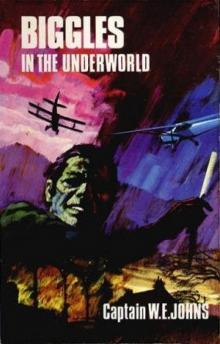 Biggles in the Underworld
Biggles in the Underworld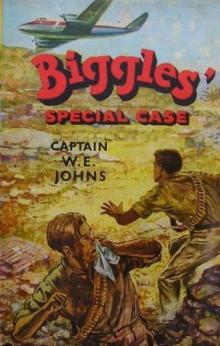 Biggles' Special Case
Biggles' Special Case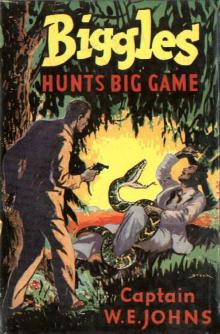 34 Biggles Hunts Big Game
34 Biggles Hunts Big Game 03 Now To The Stars
03 Now To The Stars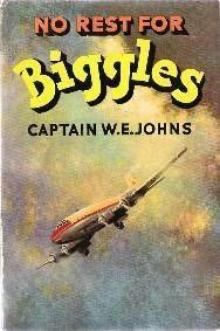 55 No Rest For Biggles
55 No Rest For Biggles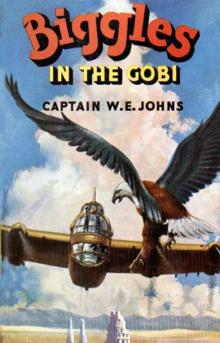 46 Biggles in the Gobi
46 Biggles in the Gobi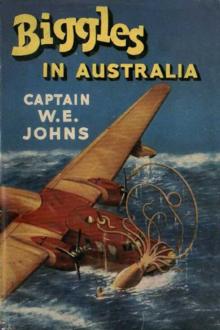 52 Biggles In Australia
52 Biggles In Australia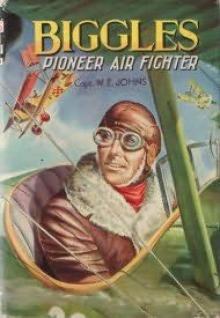 51 Biggles Pioneer Air Fighter
51 Biggles Pioneer Air Fighter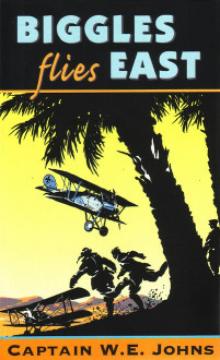 05 Biggles Flies East
05 Biggles Flies East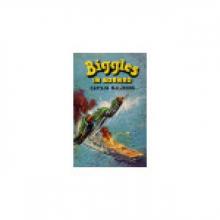 28 Biggles In Borneo
28 Biggles In Borneo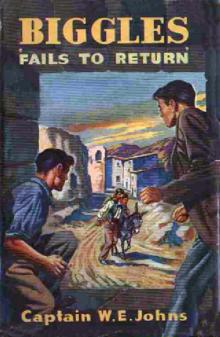 29 Biggles Fails to Return
29 Biggles Fails to Return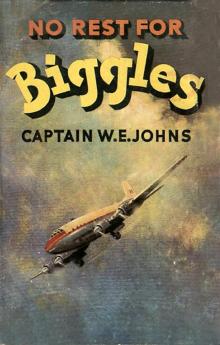 55 No Rest For Biggles (v2)
55 No Rest For Biggles (v2)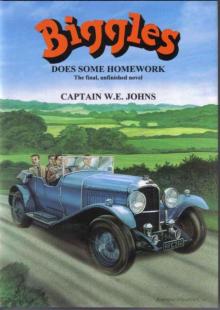 Biggles Does Some Homework
Biggles Does Some Homework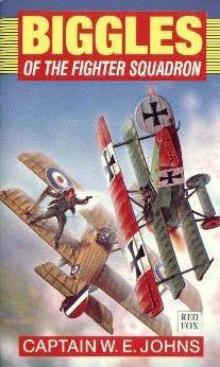 Biggles of the Camel Squadron
Biggles of the Camel Squadron 35 Biggles Takes A Holiday
35 Biggles Takes A Holiday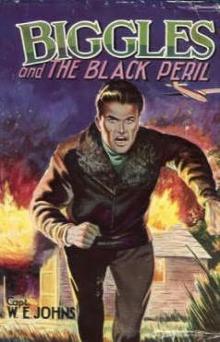 Biggles And The Black Peril (06)
Biggles And The Black Peril (06)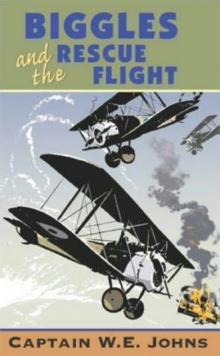 17 Biggles And The Rescue Flight
17 Biggles And The Rescue Flight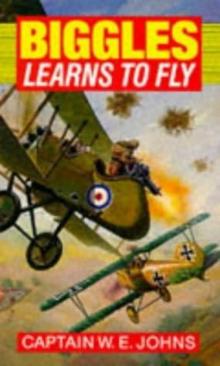 Biggles Learns To Fly
Biggles Learns To Fly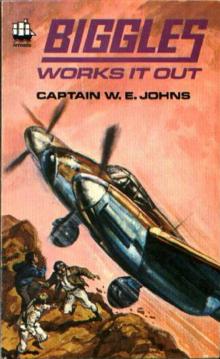 40 Biggles Works It Out
40 Biggles Works It Out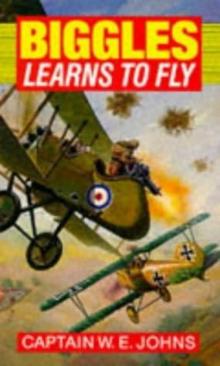 05 Biggles Learns To Fly
05 Biggles Learns To Fly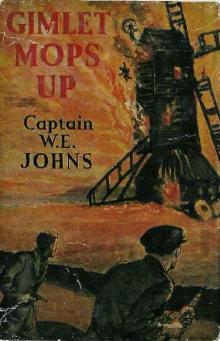 04 Gimlet Mops Up
04 Gimlet Mops Up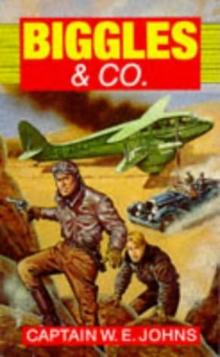 10 Biggles and Co
10 Biggles and Co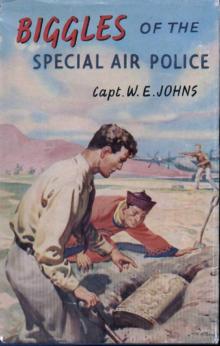 47 Biggles Of The Special Air Police
47 Biggles Of The Special Air Police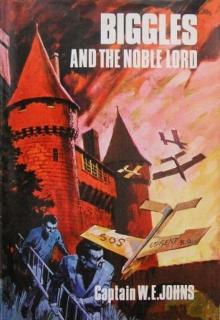 Biggles and the Noble Lord
Biggles and the Noble Lord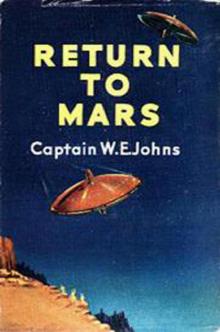 T2 Return To Mars
T2 Return To Mars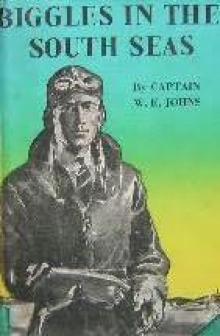 21 Biggles In the South Seas
21 Biggles In the South Seas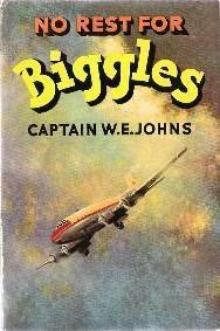 No Rest For Biggles
No Rest For Biggles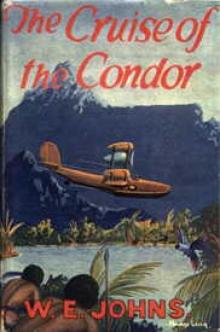 Biggles In The Cruise Of The Condor (02)
Biggles In The Cruise Of The Condor (02)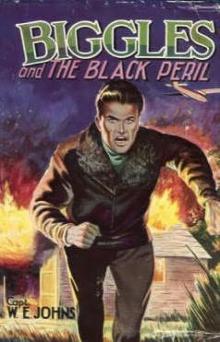 06 Biggles And The Black Peril
06 Biggles And The Black Peril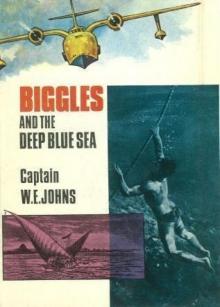 Biggles and the Deep Blue Sea
Biggles and the Deep Blue Sea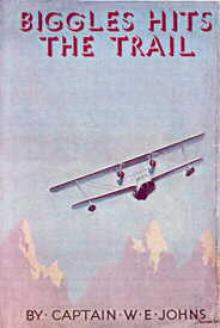 06 Biggles Hits The Trail
06 Biggles Hits The Trail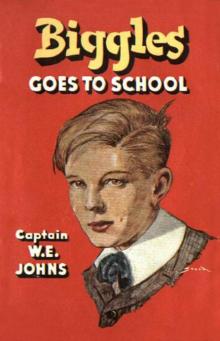 39 Biggles Goes To School
39 Biggles Goes To School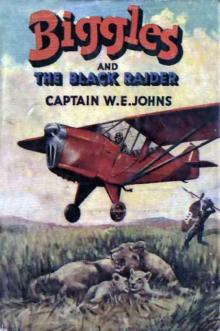 44 Biggles and the Black Raider
44 Biggles and the Black Raider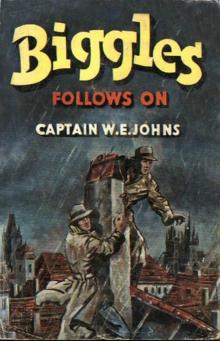 42 Biggles Follows On
42 Biggles Follows On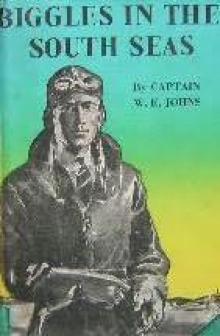 Biggles In the South Seas
Biggles In the South Seas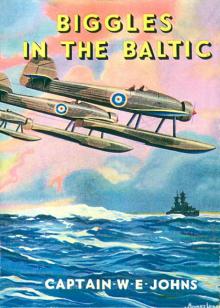 21 Biggles In The Baltic v3
21 Biggles In The Baltic v3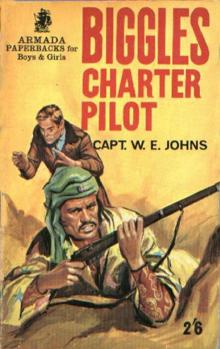 27 Biggles - Charter Pilot
27 Biggles - Charter Pilot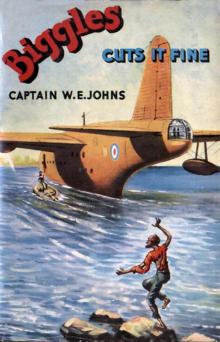 49 Biggles Cuts It Fine
49 Biggles Cuts It Fine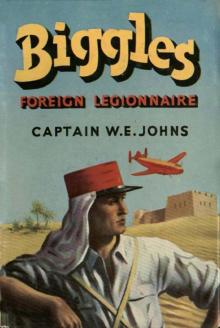 51 Biggles Foreign Legionaire
51 Biggles Foreign Legionaire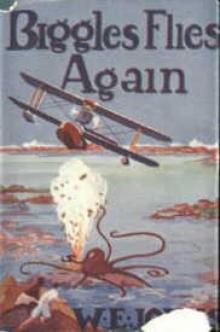 04 Biggles Flies Again
04 Biggles Flies Again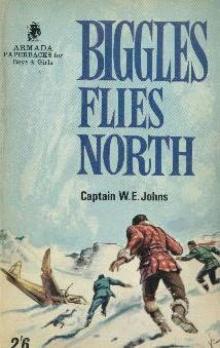 16 Biggles Flies North
16 Biggles Flies North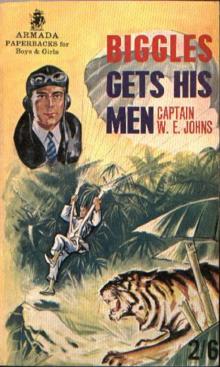 37 Biggles Gets His Men
37 Biggles Gets His Men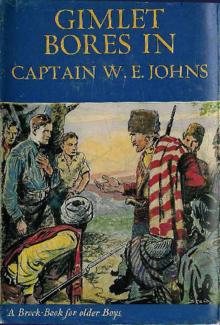 07 Gimlet Bores In
07 Gimlet Bores In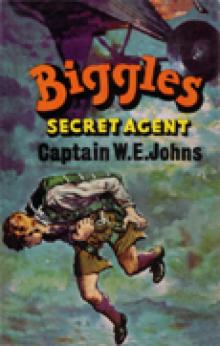 19 Biggles Secret Agent
19 Biggles Secret Agent 32 Biggles In The Orient
32 Biggles In The Orient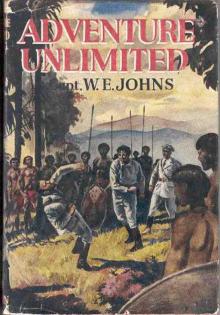 Adventure Unlimited
Adventure Unlimited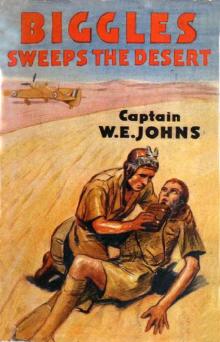 26 Biggles Sweeps The Desert
26 Biggles Sweeps The Desert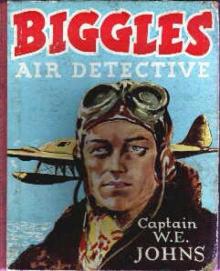 Biggles Air Detective (43)
Biggles Air Detective (43) 36 Biggles Breaks The Silence
36 Biggles Breaks The Silence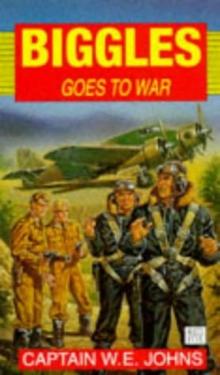 14 Biggles Goes To War
14 Biggles Goes To War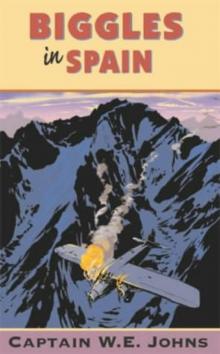 18 Biggles In Spain
18 Biggles In Spain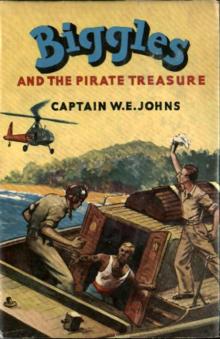 50 Biggles and the Pirate Treasure
50 Biggles and the Pirate Treasure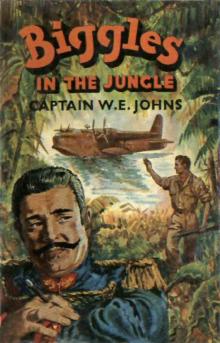 25 Biggles In The Jungle
25 Biggles In The Jungle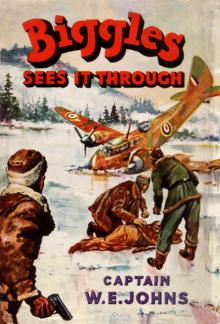 23 Biggles Sees It Through
23 Biggles Sees It Through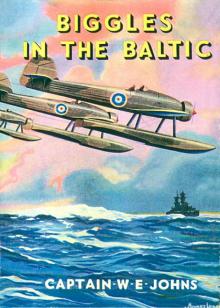 21 Biggles In The Baltic
21 Biggles In The Baltic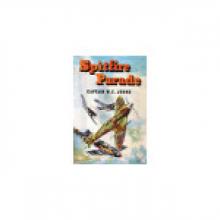 24 Spitfire Parade
24 Spitfire Parade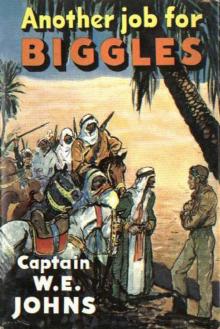 38 Another Job For Biggles
38 Another Job For Biggles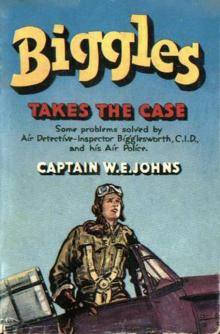 41 Biggles Takes The Case
41 Biggles Takes The Case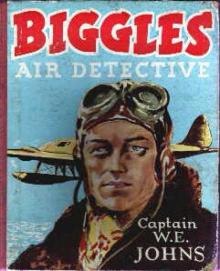 43 Biggles Air Detective
43 Biggles Air Detective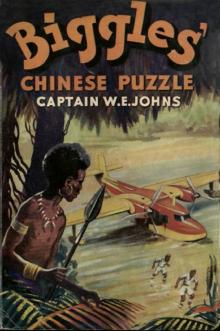 53 Biggles Chinese Puzzle
53 Biggles Chinese Puzzle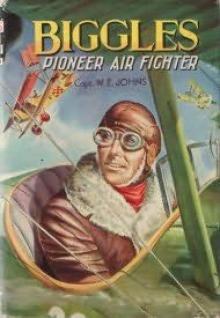 Biggles Pioneer Air Fighter (51)
Biggles Pioneer Air Fighter (51)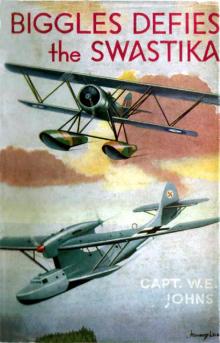 22 Biggles Defies The Swastika
22 Biggles Defies The Swastika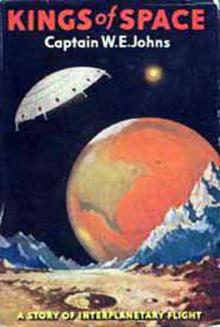 01 Kings Of Space
01 Kings Of Space